Fatigue is by far the most complained of thyroid symptom.
I am often asked:
“What can I do for energy with thyroid issues?!”
Many of us experience this heavy, indescribable fatigue before diagnosis of hypothyroidism and Hashimoto’s, and for many, it may not entirely go away once on thyroid medication either. Why?
This post is going to delve in to the possible reasons for fatigue with hypothyroidism and Hashimoto’s and how to improve it.
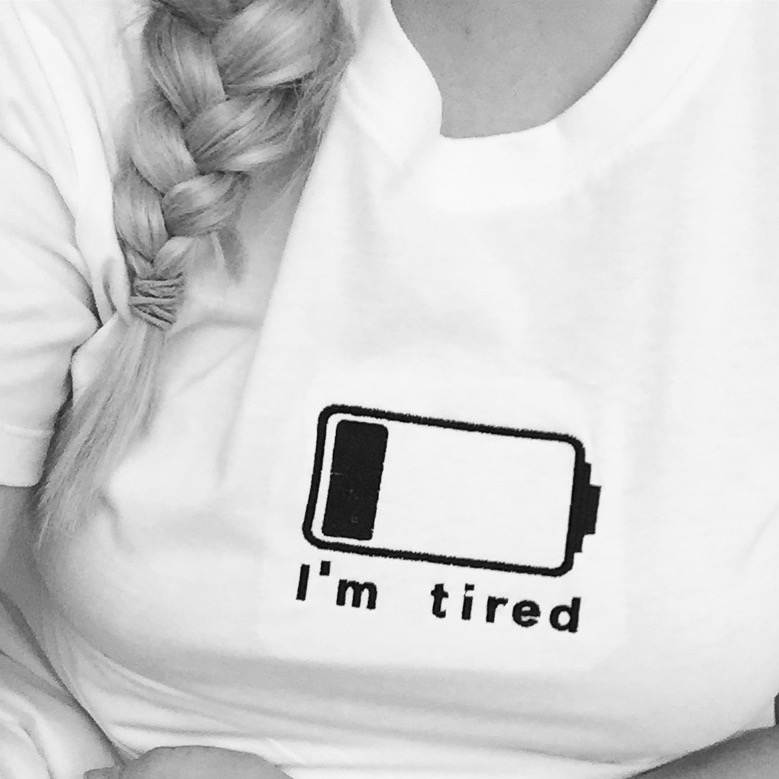
Firstly, what does thyroid fatigue feel like?
Thyroid fatigue can feel overwhelming, debilitating and unlike anything else. It’s not the same as ‘regular tired’. Thyroid fatigue is often described as an overall exhaustion of every inch of the body; as if you’re dragging a dead weight along.
It’s not ‘I had a late night and am a bit groggy today’ tired. It feels as if you could fall asleep with every blink you take.
When your eyelids are so heavy that it’s seriously dangerous to drive.
When getting up the stairs is such a difficult task, that you have to plan about half an hour before you want to go upstairs, in order to physically prepare yourself for it.
A lot of thyroid patients wake up in the morning and no matter how good a night’s sleep they get, never feel refreshed. They often wake up feeling more tired.
Related Article: Thyroid Patients Explain What Thyroid Fatigue Really Feels Like

What causes this level of exhaustion? Let’s explore the possibilities below.
1. Low (or high!) Thyroid Hormone Levels
The main purpose of thyroid hormone is to ensure that the metabolism is running properly. People with an underactive thyroid or hypothyroidism (and often not optimally medicated for it) may have symptoms associated with a slow metabolism, such as fatigue.
One of the starting points I recommend to all thyroid patients, is to ensure they optimise their thyroid hormone levels. Your doctor may be saying that your test results are ‘fine’, ‘in range’ or ‘normal’, but this isn’t the same as optimised.
Optimal thyroid levels are way more specific than just ‘in range’. When they’re just in range, we can still have a boat load of symptoms and issues, yet when optimised, most if not all tend to resolve.
What should you be looking for on your test results? Optimal thyroid levels are listed here.
Please ensure that the full set of thyroid tests are being run too and not just TSH. TSH alone does not give you the full picture. We need to optimise all thyroid levels and not just one.
If your TSH, Free T3, Free T4, thyroid peroxidase antibodies or thyroglobulin antibodies are not optimal, it could well be why you still don’t feel well and have ongoing issues, despite being on thyroid medication.
Optimising thyroid antibodies by putting Hashimoto’s in to remission, is discussed further down this list.
It’s worth knowing that you can order full thyroid panels yourself from online laboratories too. This was a big factor in me getting the treatment I needed. Find a UK lab here and a US lab here.
T4 medications such as Levothyroxine and Synthroid work well for many people and raise their Free T3 and Free T4 to optimal, but not everyone. I needed direct T3 in my medication because, like so many other thyroid patients, my body was not adequately converting the T4 in Levothyroxine to enough T3 to give me optimal thyroid levels.
Little note: if your thyroid hormone levels are too high (which can happen with overmedication or Hashimoto ‘swings’), this can also cause fatigue. So get your levels checked.)

2. Hashimoto’s
Related Article: Why It’s Important to Know if You Have Hashimoto’s
Hashimoto’s causes around 90% of hypothyroidism cases and it’s good to know if you have it because if you do, there are things you can do to lower the antibodies and even get it in to remission – keeping antibodies low which stops further damage being done to the thyroid gland. This can help you feel more stable in terms of symptoms, flares and thyroid health in general. This includes energy levels.
Pretty much everything in this article helped to get my Hashimoto’s in to remission, including going gluten-free, taking Selenium and Vitamin D supplements, balancing my blood sugar and lowering high cortisol. Read in full, how I got my Hashimoto’s in to remission here.
UK lab test for thyroid antibodies is available here, with a US lab here.
3. Low Vitamin or Mineral Levels
When we have hypothyroidism and Hashimoto’s, it’s not uncommon to have low vitamin levels too. These can include Iron/ferritin, Vitamin D, Vitamin B12 and folate. It’s worth checking these especially if you are tired a lot, have hair loss, bruise easily or get fatigued easily. I was anaemic in terms of iron and had very low Vitamin D levels. Supplementing these and raising the low levels to optimal helped a lot.
Most vitamin levels can be checked via your doctor, but in my own experience, they’re not always happy to check them if they think ‘you’re probably fine’. However, we all know that looking ‘fine’ and what’s going on inside can be very different indeed. So I have listed some places for ordering tests below.
Vitamin D: UK test option here. UK and US test option here.
B12: UK and US test option here.
Folate/Folic acid: UK and US test option here.
Ferritin: UK and US test option here.
Iron, T.I.B.C., Transferrin Saturation: UK and US test option here.

4. Adrenal Dysfunction
Adrenal dysfunction (more accurately referred to as hypothalamic-pituitary axis dysfunction) seems common in those with thyroid issues and can make us feel like we’re running on empty.
Commonly seen in those burning the candle at both ends and juggling perhaps a bit too much at once, higher than ideal cortisol levels can cause ongoing fatigue on thyroid medication.
I completed a saliva test to check for adrenal issues and discovered that my cortisol was high all day, contributing to symptoms of fatigue, struggling to sleep (feeling tired but wired), anxiety, hitting a slump in the afternoon, hot flushes, a weakened immune system and more. You can find adrenal testing here and here, as many doctors won’t test for it.
I addressed the adrenal issues and brought my cortisol levels back to normal by fixing my gut issues and sex hormone imbalances mentioned further down.
I can’t stress how big a part adrenal dysfunction played in my quality of life. It made my mornings incredibly difficult as I felt dizzy, nauseous and fatigued beyond words, before it was ‘fixed’.

5. Thyroid Medication being Taken Incorrectly
We should be taking our thyroid medication on an empty stomach and leaving at least one hour before eating or drinking anything (besides water) as it can affect the absorption and effectiveness.
It is also explained on most thyroid medication packaging that we should be leaving at least four hours between taking thyroid medication and any pills containing iron, calcium, oestrogen and magnesium.
I started off taking my thyroid meds with my iron supplement (for anaemia) and contraceptive pill, which included oestrogen. This definitely didn’t help me get the most out of my thyroid medication at first.
You may also benefit from taking your thyroid medication at a different time of day e.g. T4 medication can be taken at night instead of in the morning, and NDT and T3 meds are often dosed several times a day instead of all in one go.
Ensuring you’re getting the most out of your meds means you’re absorbing more and could see an improvement in energy levels as a result.
6. Diet
Hydration
Many of us are not hydrating enough, which contributes to low energy.
All of our cells need water to function properly and many of the chemical reactions that happen in our bodies require water, including energy production. If there isn’t enough water available, energy production can drop. The average woman needs about 2 litres of water a day and the average man between 2.5-3 litres, so make sure you’re sipping on water all day long!
Blood Sugar
Having Hashimoto’s means we are often more prone to wobbly blood sugar levels too, so it can be crucial to ensure you are keeping blood sugar balanced and eating with a focus on this.
Being more aware of eating a lot less sugar and more protein and fats with every meal and snack, can be enough to improve the fatigue, nausea, hangriness (feeling hungry and angry) and sugar cravings, that many of us have in the mornings especially. To support stable blood sugar levels, don’t skip meals, get plenty of protein in at breakfast time especially, but also in all your meals and snacks throughout the day. Pair protein and healthy fats with carbs for example, to create more sustainable energy.
Eating in this way reduces blood sugar spikes and energy is more stable.
Eat enough
With a history of disordered eating habits, I finally stopped yo-yo dieting and calorie counting, obsessing over weighing myself and losing pounds on the scale, and instead focused on feeding myself nutritious, wholesome food at the start of 2018. This was a huge shift in how I viewed my health and how I looked after myself.
I didn’t realise until I had given up these habits, just how much they were making my thyroid and endocrine health worse. Dieting can make you more hypothyroid, encourage blood sugar imbalances and worsen adrenal fatigue. My obsession with yo-yo dieting, restricting calories and focusing on my weight over how I physically felt were in fact not only hindering my ability to get my health back on track, but making it worse. I was so tired all the time.
Consider Sensitivities
Many thyroid patients state they feel more energised when they remove dairy or gluten, and although I was initially very skeptical and avoided going gluten-free for a long time, I was astounded at the improvement in my health when I eventually did.
Alcohol and caffeine can also exacerbate fatigue, adrenal issues and blood sugar imbalances in thyroid patients too. All covered here.

7. Over Exercising / Not Exercising The Right Way For Your Body
Many of us are over exercising or doing the wrong kind of exercise and in fact making things worse. I was pushing my body beyond its limits by forcing cardio it just did not get on with, exacerbating fatigue.
Repeatedly engaging in overly demanding exercise can cause a surge of biochemical imbalances to occur within the body, including the disruption of the hypothalamus-pituitary axis, which can reduce thyroid function. Intense cardio, marathon running and training, obsessive weight lifting etc. with little to no recovery time can all cause extreme stress to the body and particularly the thyroid.
It is important for us to know what is working and what isn’t. Listening to our bodies is crucial and taking things at our own pace helps us recover instead of going backwards.
Read about the best way to exercise with hypothyroidism here.
This one simple thing changed my whole outlook on living with a chronic health condition.
The spoon theory is a metaphor those with a disability, chronic illness, health condition and/or autoimmune disease (such as hypothyroidism or Hashimoto’s), can use to explain their reduced amount of energy and how they manage their energy levels effectively.
Whereas people with no ongoing health issues do not need to worry about running out of energy, many of us with thyroid issues do, so learning how to manage our energy use wisely can be a huge game changer.
We can be more at risk of over-exhausting and expecting too much of ourselves, compared to others, so it’s important to rediscover your energy levels and expectations. Read about the spoon theory here.
8. Poor Sleep Routine or Lack Thereof
This is an obvious one, but so many of us don’t do it: implement and stick to a good evening routine.
We should all aim to get 7-9 hours of sleep a night, getting in to bed by 10 or 11pm to support adrenal health. My sleep schedule used to be all over the place and thanks to the adrenal dysfunction, I could be awake until 3am some nights/mornings.
I started to limit electronic usage in the evenings, particularly 1-2 hours before bedtime and made sure to leave work at the office. I made it my routine to be in bed for between 10 and 11pm every night, in a completely dark room, and after a while, it just seemed to click.
At first, I could lie awake for ages, but now, I finally get in to bed and fall asleep without an issue soon after. It took awhile for my body to get the message and fall into the routine of feeling sleepy at that time, but it was worth the persistence. I also make sure to exercise everyday so as to encourage the readiness to sleep.

9. Poor Morning Routine
There were many ways I had to improve how I started my day too, which included making sure I was taking my thyroid medication properly, doing some gentle exercise and eating the right type of breakfast. Read more here.
10. Poor Gut Health
Poor gut health seems common in those with hypothyroidism and Hashimoto’s and can contribute to many symptoms, including fatigue, brain fog and digestive complaints.
Improving my gut health was one of the biggest pieces of my puzzle.
A UK test for Candida can be found here and a US test here.
***
Have you explored the possible reasons for your ongoing fatigue?

See also:
The bestselling book Be Your Own Thyroid Advocate: When You’re Sick and Tired of Being Sick and Tired, which covers all the information you need to get rid of thyroid symptoms and get your life back.

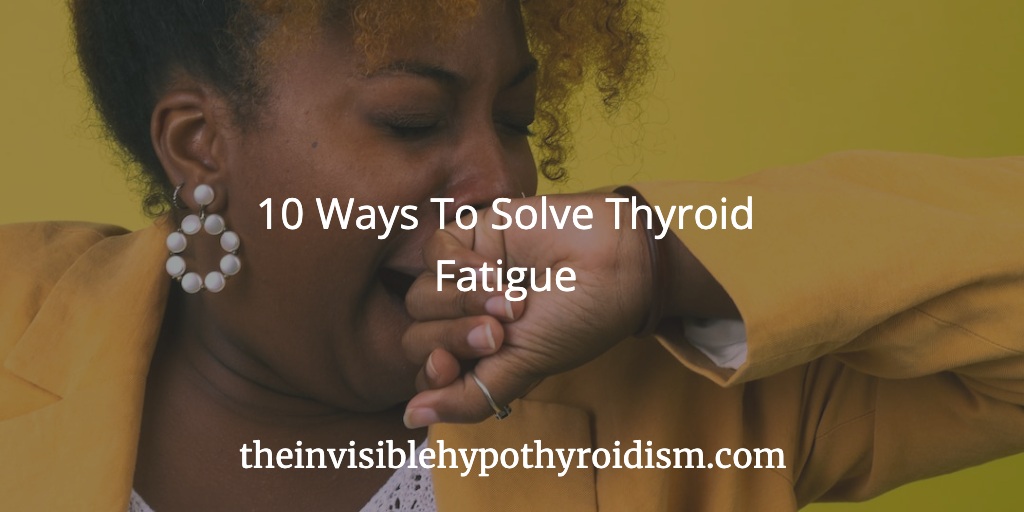
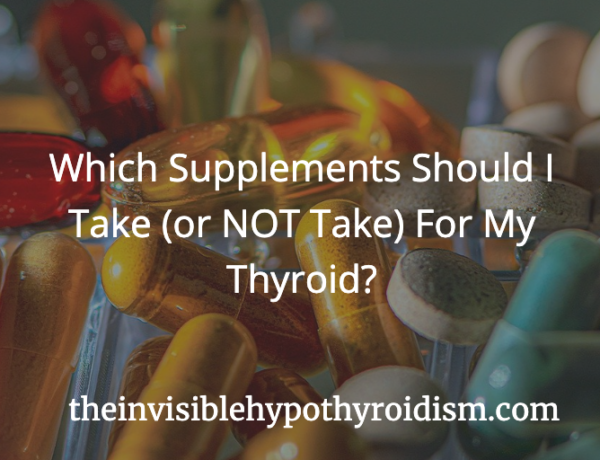
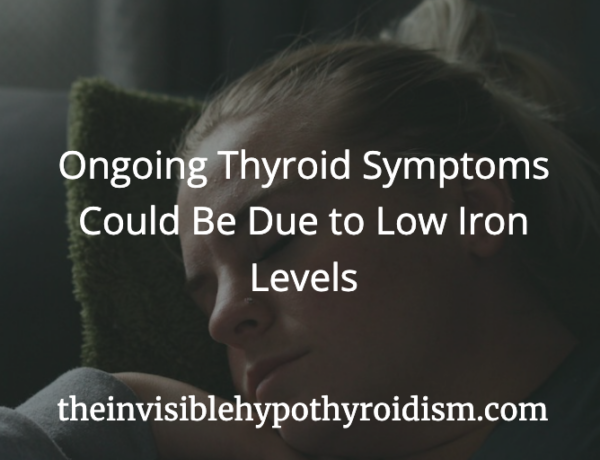
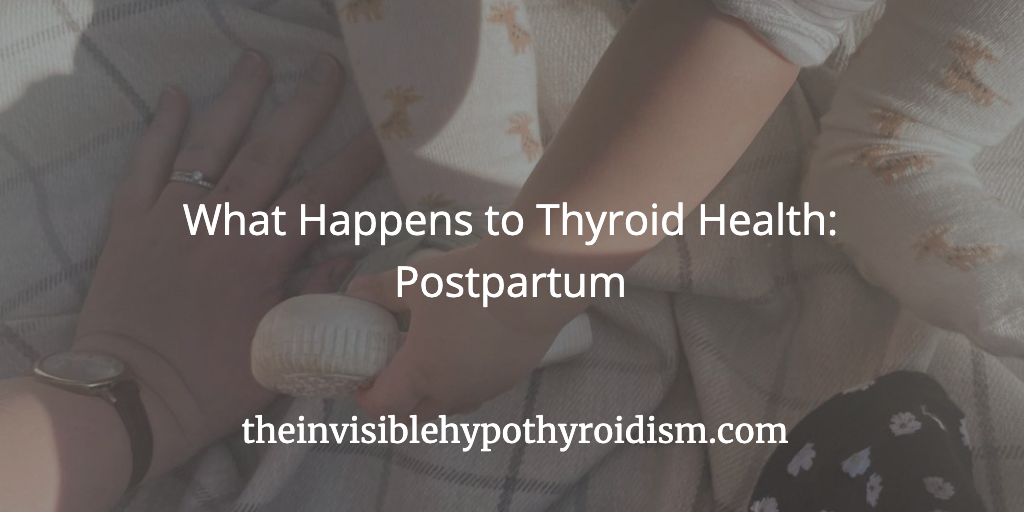

No Comments